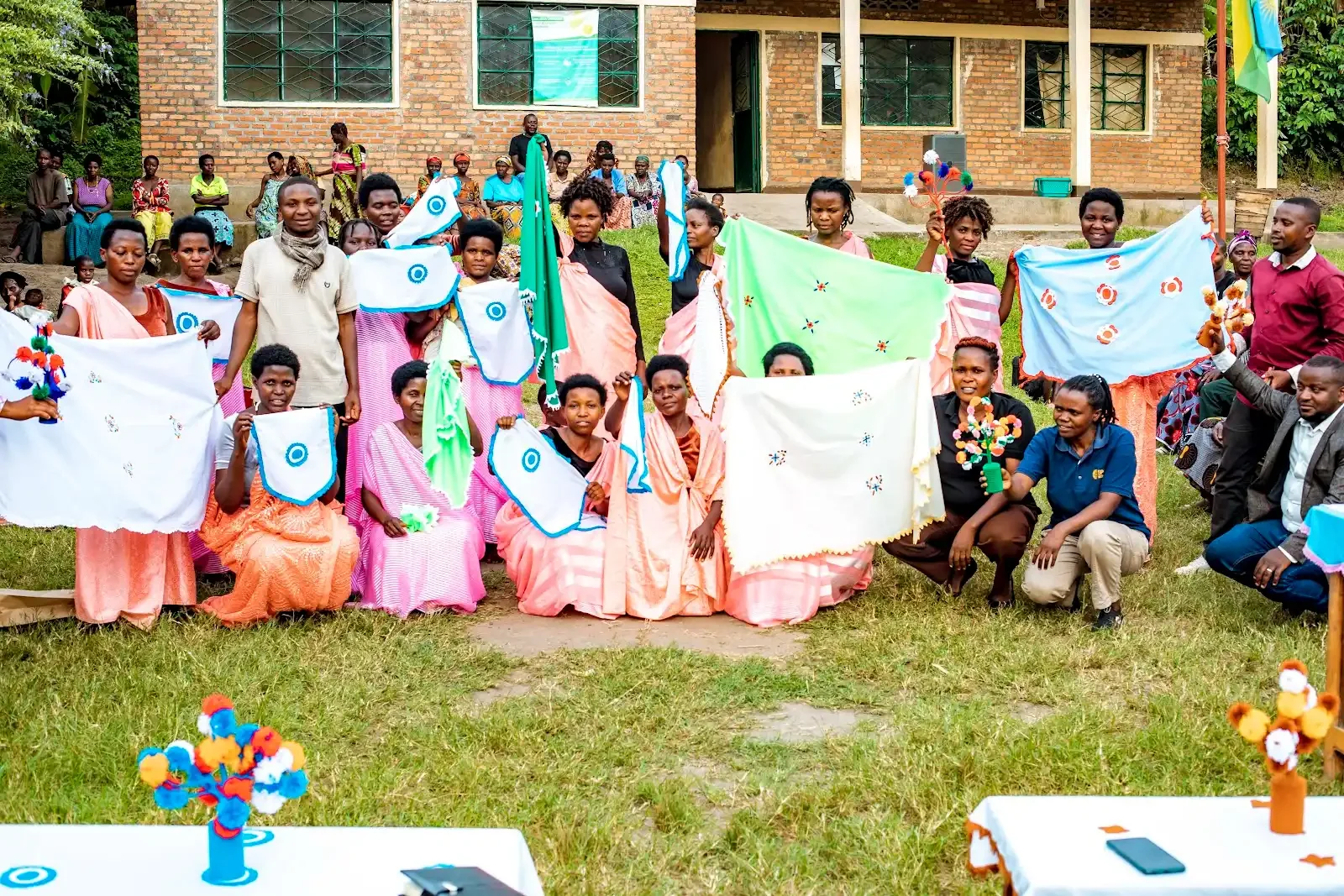Sewing a Future: Women in Nyakazenga Stitch Together Success Through Collective Action
The women of the Nyakazenga village in Rwanda are working together to drive their own success. After just two months of training on collective action and financial management through Spark’s Facilitated Collective Action Process (FCAP), a group of women in the Nyakazenga village of Rwanda launched a sewing business specializing in handmade table decorations for living rooms.
Marie Chantal Nyirangirimana, Team Leader of the newly formed Women's Association, explained that the FCAP training served as a powerful catalyst for their initiative.
“We started this community-led association just five days after completing the FCAP training," she shared. “The training emphasized the importance of community ownership and active citizen participation in sustainable projects. This resonated deeply with us, inspiring us to establish this association”.
Initially comprising six women, the group, named "Women in the Development Process," aims to enhance their business management skills and improve their families' livelihoods.
Marie Chantal highlighted that they started with a modest initial capital of Rwf 30,000 (USD 21.20), raised through voluntary weekly contributions of Rwf 200 (USD 0.14) per member. Through consistent saving efforts, the group has accumulated Rwf 110,000 (USD 77.74). Each set of handmade table decorations is sold for RWF 25,000 (USD 17.67), generating a profit of RWF 5,000 (USD 3.53) per set.
Notably, Marie Chantal emphasized that their initiative does not interfere with their participation in the Village Savings and Loan Association (VSLA) established through the FCAP, where they contribute Rwf 100 (USD 0.07) per week. “Our group is growing steadily. We’re now boasting 16 members and we continue to welcome new participants”, she said.
Marie Chantal is confident that with the support of their local leaders, they will build a powerful group that will help the village, particularly women, improve their livelihoods and their families’ wellbeing. The women in Nyakazenga village envision expanding their skills by learning to sew with machines and exploring other knitting techniques.
"We are deeply grateful to Spark Microgrants for… teaching us how to leverage our own resources to develop ourselves. The support we will receive is invaluable. We promise that with the projects our village has chosen, such as raising pigs, we will strive for productivity and achieve the development we envision. We are committed to actively participating in this process," Marie Chantal concluded.
The FCAP provides immediate benefits in enabling communities to drive their own development. Across Spark villages, we see a 2x project multiplier, meaning that for every microgrant-funded project, community members launched their own initiative through independent community means, like the sewing business in Nyakazenga. The Nyakazenga village is just one example of how, through the FCAP, villages are coming together to determine their own futures.


